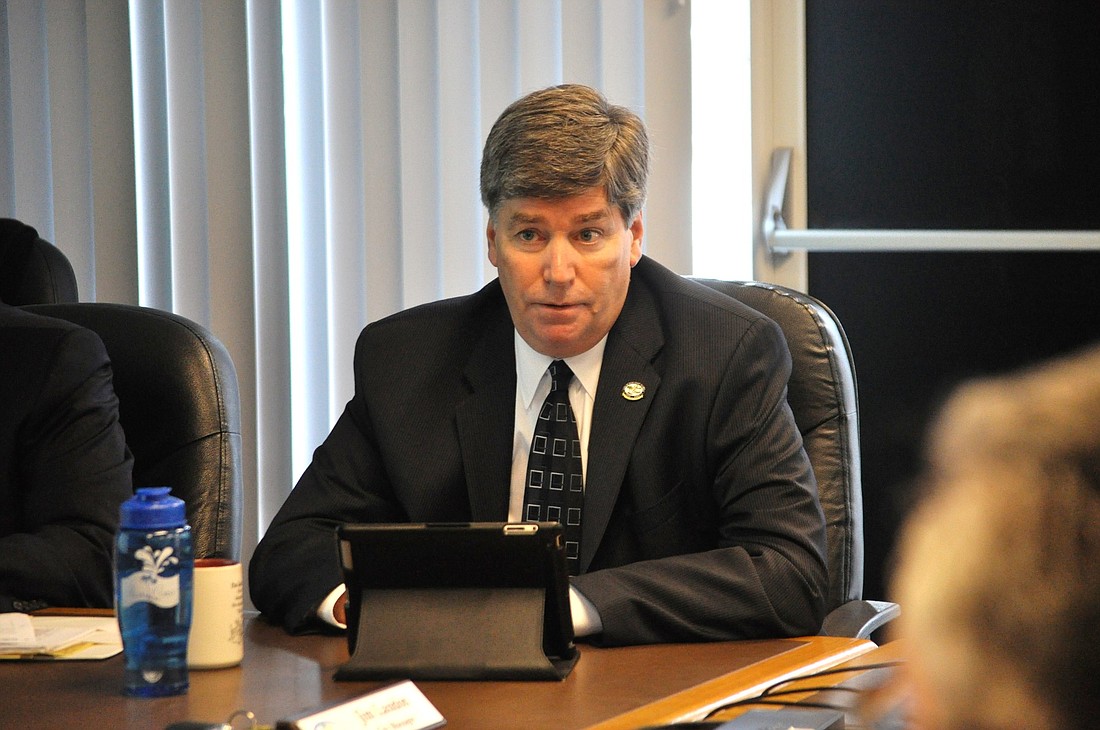- April 5, 2025
Your free article limit has been reached this month.
Subscribe now for unlimited digital access to our award-winning local news.

Longtime advocate of Palm Coast’s red light cameras Jim Landon has grown concerned about the direction they have taken.
“As someone who’s always been a supporter of the concept, I really feel that this has gone overboard,” said Landon, Palm Coast's city manager, during a Tuesday workshop of the Palm Coast City Council.
Landon said he still believes that the cameras promote public safety by reducing the number of red lights run, but said that once the state got involved in the cameras’ enforcement, the process became unfriendly.
Some opponents of the cameras say they’re a ploy to generate more revenue for Palm Coast, which Landon says is untrue.
“But the more I look at it, I don’t blame (people) for thinking that, because I think it’s become a moneymaking scheme for the state,” Landon said.
When the cameras were first installed, they were run by Palm Coast. Infractions cost $125. Then, as red light cameras became more popular throughout the state, legislators altered the structure of fines, Landon said.
Now, running a red light in Florida generates a $158 fee. Of that, $100 is sent to the state Department of Revenue’s general fund; $10 is sent to the state’s health emergency medical service trust fund; $3 is given to the state’s brain and spinal cord injury trust fund; and $45 is distributed to the local municipality in which a violation occurred.
Under a new law signed by Gov. Rick Scott earlier this month, local governments can charge more money for those appealing their red light citations, potentially upping the cost of a run-in with a red light camera to more than $400. City Council said when the law was signed that it does not intend to collect more money.
City Council Mayor Jon Netts echoed Landon’s sentiments.
“We started with a really simple process that’s been complicated by state law,” he said.
Landon said he was unsure of how to do so, but that he wanted to try to rein the red light camera fees in.
“Let’s at least try to look at it and try to bring some common sense to it,” Landon said.
City looking to collect unpaid fees for nuisance abatement
When homeowners let their lawns grow wild, or break city codes in other manners, the city of Palm Coast issues a warning to those owners and, if the matter is unattended, will rectify the code violation itself.
Homeowners are sent a bill for those nuisance abatement services. About 54% of those homeowners pay. The city has incurred $308,000 in unpaid nuisance abatement costs, and it’s looking to collect.
Palm Coast is a special assessment district, which means that the city can issue liens against properties for services rendered. The Palm Coast City Council discussed on Tuesday adding unpaid fees to property owners’ tax bills as a special tax lien to ensure payment. The council will vote on the matter at a July 2 meeting.
Your free article limit has been reached this month.
Subscribe now for unlimited digital access to our award-winning local news.